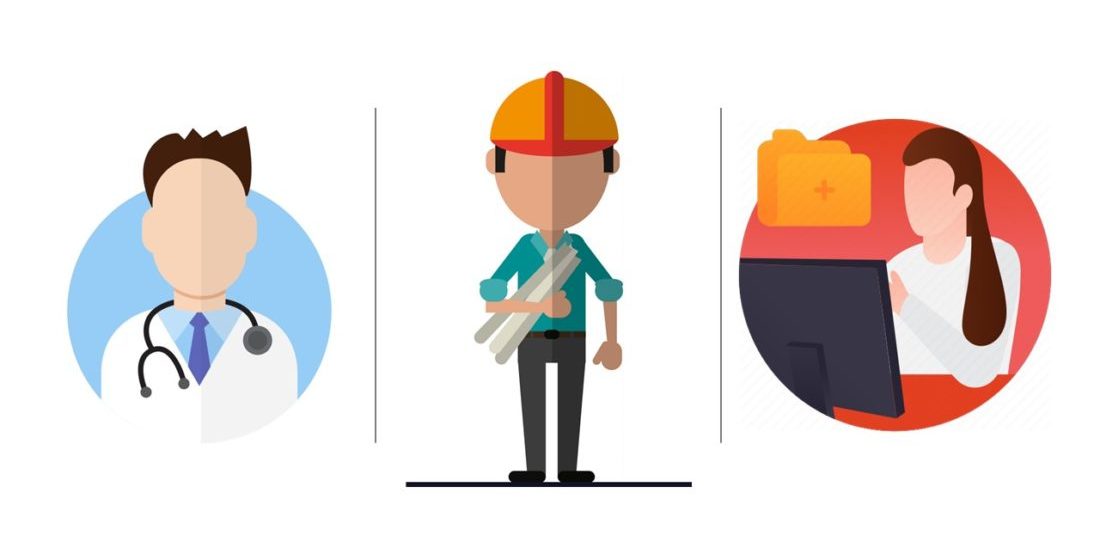
Industrial engineers (IEs) entering the marketplace today are in an interesting position because the advancement of technology, the prevalence of automation, and the accessibility to technical information has changed the landscape of Industry and Manufacturing in a way that Industrial engineers in previous generations have not had to face. This is going to reshape the role of Industrial Engineering and therefore the skill sets that IE’s require to be successful.
You may not think that the medical profession and engineering profession have anything in common, but that’s where you may be wrong.
There are many differences on the surface between the two professions, including working environment, technical skills and clientele, but dig a little deeper and the two professions have an underlying commonality. That is, the impact of the internet, emerging technologies, and access to technical information at the consumer, client or patient’s fingertips at all times.
Lets break this down a little more:
Improved access to medical information through the internet has changed and challenged the role of the doctor or medical professional. Before, they were the knowledge base for their patients, having sole access to symptom and diagnosis information from their years at school and in practice. Today, many patients come into appointments having thoroughly researched what their condition is, and the doctor’s role is more about facilitating the decision, correcting their assumptions, suggesting alternative treatment plans and providing access to a network of specialists. The information is readily available, but the use and application of it are what doctors are needed for.
Similarly, this trend is happening in the industrial engineering and manufacturing fields. The tools IEs have been known for will be readily available to others through a simple search query on Google or another search engine. Learning about Lean Six Sigma methodologies, cost analysis, and quality control procedures is no longer exclusive to those who studied industrial engineering in school. Just about anyone can look up how they can make their facility operate better, but the use, application and interpretation of them will require expertise that IEs will need to provide.
Additionally, Simulation and Analytics tools have automated many processes that IEs were previously responsible for. These emerging technologies are becoming cheaper and easier for companies to integrate. Robots can now work around the clock, delivering faster productivity cycles and meeting the rising demands of customers. The use of Industrial Internet of Things can monitor stock of raw materials in real time, leading to continuous productivity and avoiding a break in the chain when supplies are getting low. Manufacturing 4.0, data automation and cognitive computing also give companies greater access to mass amounts of data previously unavailable in a short amount of the time.
As we move to a more knowledge-based global economy (KBE), competitive advantage relies less on natural resources and more on what we can do with those resources. IEs will now have to interpret, analyse and apply this knowledge to better understand and improve businesses. Their relationship with technology will therefore have to change.
What does this mean for new Industrial Engineers entering the workforce?
Almost every industry is going through significant changes with the introduction and prevalence of new technologies. These changes can be intimidating when they threaten the future success of your career. The common presumption is that robots will take over and wipe out all jobs. While it may be true that robots can and will improve productivity through their ability to perform repetitive tasks for hours without loss of concentration or risk of error, the human element is still needed to keep things running. What will shift, is the way humans and technology interact, and the experts that interact with technology will need to adapt their skill sets accordingly.
The mass amount of data being captured by new capabilities will provide companies complete visibility of operations and the ability to capture every process in the form of data. This information, which will make production more efficient and in turn, drive cost savings, is ultimately analyzed by humans who must have the critical thought and decision-making skills to determine how automation can most effectively be used to solve a problem. Automation will also need some form of human response or interaction to run smoothly. Although many previous responsibilities of the Industrial engineer may have been taken over by automation, these experts must now learn to manage operations or do more challenging problem-solving work within an organization to remain relevant.
They key to combating disruptive forces such as emerging technologies is not to stand back and let them take over, but to adapt and work with them instead of against them. Skill sets will need to be developed to be more sophisticated, and the knowledge base of the Industrial Engineer, much like a medical professional, will need to be expanded and adapted to accommodate this shift. We must continue to learn, think critically, network with peers and experts in the industry, and apply what we learn in everyday practices. Remaining flexible, adaptive, and acknowledging change instead of ignoring it will aid in preventing the field from becoming obsolete in the presence of cloud computing, AI, and automation.
We are in the midst of a new world, but there will always be demand for human thinking at the centre of efficient operations. How will you adapt?
